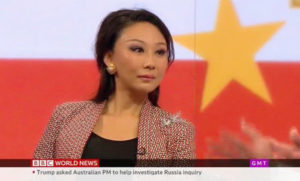 |
| Shirley Ze Yu |
Shirley Ze Yu:
“The only force that can defeat China is from within. No exterior force can.” On October 2 this year, the Communist Party’s leading journal of political theory, Qiushi, published in full a 2018 speech by President Xi Jinping, highlighting in stark language China’s coming challenges as the People’s Republic enters its 71st year. Indeed, in 2020, China’s primary economic risk is most likely to come not from the trade war, but from its inflated property market.
“Black swans” and “grey rhinos” dominated China’s financial lexicon this year. Few in the population know what they are but most know what they mean. They mean fear.
China’s property market is the grey rhino, overfed on massive liquidity steroids. One injection was the massive stimulus introduced in response to the 2008 global financial crisis. Another injection was from the six consecutive interest rate cuts in the 12 months to November 2015.
Awash in liquidity, Chinese stock markets took off too, but by late 2015, the bubble had burst and the benchmark Shanghai Composite Index tumbled about 50 per cent from its 2015 peak. Real estate, however, partied on. At the annual Caixin Summit earlier this month, China’s top economic policymaker Liu Shijin said that the targeted 6 per cent growth in gross domestic product is still “within reach” this year but for next year, worryingly, “drastic measures would be needed”.
Experts have drawn comparisons between China’s overheated property market and Japan’s housing bubble that burst in 1991, plunging the economy into the “lost decades”. Like Japan, China has risen to become a major trading nation thriving on a massive trade surplus. Both are today among the world’s top creditor nations with a culture of high savings rates and heavy reliance on bank lending, creating a highly leveraged economic growth model.
Former United States Federal Reserve chairman Ben Bernanke concluded that Japan’s post-bubble deflation was due to ill-timed and ill-measured monetary-policy responses from its central bank. China, however, has attributed this to the Plaza Accord, a 1985 currency pact that set off Japan’s currency demise.
With Japan’s fate in mind, China is expected to resist any attempt by the US to introduce a Plaza Accord 2.0 in the interim trade deal under negotiation. Any clause on exchange rate stability will therefore remain symbolic in both language and execution.More in the South China Morning Post.
Shirley Ze Yu is a speaker at the China Speakers Bureau. Do you need her at your meeting or conference? Do get in touch or fill in our speakers' request form.
Are you looking for more political analysts at the China Speakers Bureau? Do check out this list.
No comments:
Post a Comment